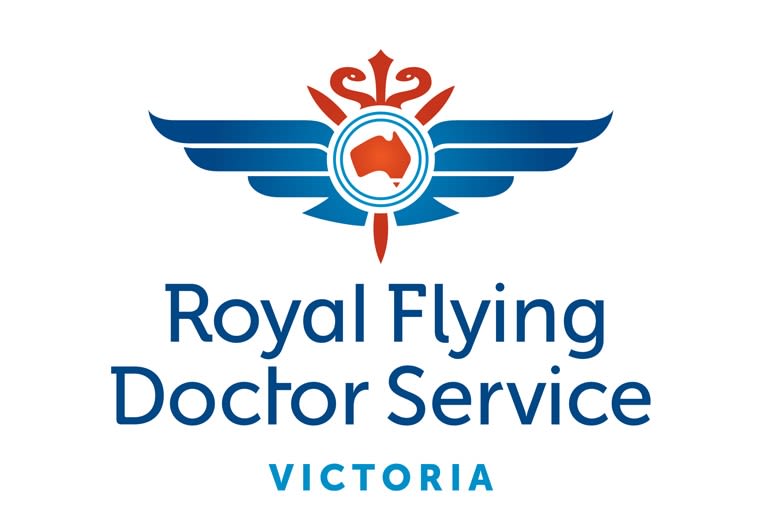Learning on the road with the Flying Doctor
As part of RFDS Victoria’s commitment to supporting rural health outcomes, our MPC crews routinely take paramedic students out on the road for some firsthand work experience – including our 2020 Give Them Wings scholarship recipient, Tanika Moore.
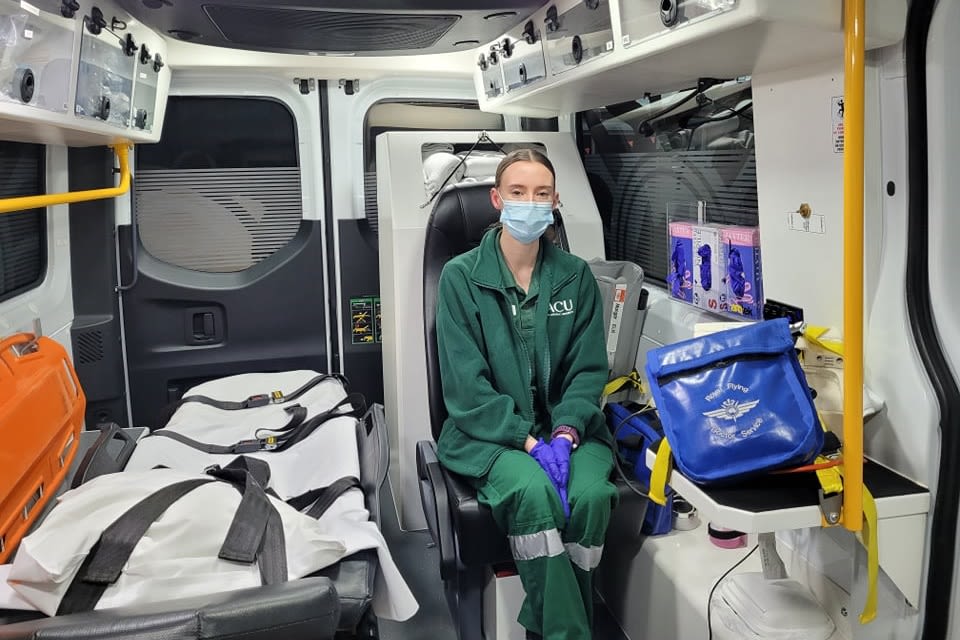
When pursuing a career in health care, there invariably comes a point in every student’s journey when they need to put down the books, roll up their sleeves and get some hands-on experience. This real world exposure is of critical importance in the field of patient transportation – both emergency and non-emergency – which is why the Flying Doctor is committed to providing student placements through its Mobile Patient Care (MPC) service.
“Having students come through on placement is a really important step in ensuring robustly experienced health care workers in the future,” says Krystal Stewart‑North, MPC’s Regional Manager in Gippsland.
This past July, one of the student placements at our Warragul base happened to be a recipient of the RFDS Victoria Give Them Wings scholarships from 2020, Tanika Moore, who hit the road for three consecutive days with Ambulance Transport Attendants Sarah Blackman and Jiddo Schaaf.
“I actually have the pleasure of already knowing Tanika, as she is a local girl who used to play hockey in the same team as my daughter,” says Sarah. “So I have known her since she was a teenager and it was funny when she walked into Warragul base and realised who she was tagging along with for the day!”
While the specific events of each placement will differ depending on the schedules of each MPC base, every student gets an invaluable insight into the daily life of a non-emergency ambulance transport attendant and patient transport officer.
On Tanika’s placement, she had the chance to practice taking vital signs, talking to patients and performing handovers at the hospital – all incredibly important skills that students do not usually get the chance to observe outside of a classroom.
“I personally had poor clinical exposure as a student, with little opportunity to be involved in patient care or practice clinical skills, so I am very big on getting them to do as much as possible and to actually speak with the patients, not just shut up and hold the bags,” says Jiddo.
Just as importantly, these placements allow students to determine in a very real way exactly what they are getting themselves into professionally.
“When they're early on in their training, working out that the job really isn't for them is important," says Jiddo. "And it’s better to work that out at the beginning [of their course] and not after they spend a year or two in the job doing all the training.”
As Sarah puts it: “This job is all very glamourous in the brochures – until you have to physically wipe up the vomit, wipe someone's bum, be abused or give a cuddle. This is what the students need to be exposed to, right from the start.”
Many of the students who come through our MPC bases are studying paramedicine and are intent on a career as an emergency respondent; however both Jiddo and Sarah believe that there is no better place to learn the basics of patient care than in the world of non-emergency services.
“In a non-emergency environment, there is no pressure as the patient is in a safe place – usually a hospital or something like that – or they are being discharged, so they’re medically cleared. So students get an unparalleled opportunity for patient interaction and to apply their skills in the real world,” says Jiddo. “They're actually able to practice those skills of taking a handover or giving a handover in a low pressure environment; but they're always going to be standing next to me, so I'm always there to back them up.”
Sarah agrees with this sentiment.
“Being non-emergency gives students a few days to be slowly introduced to life on the road and learn the ‘bread and butter’ of the job: how to speak to patients, fellow health care staff, family and the shift crew; how to take a few vital signs and do a blood sugar test; try the radio; and get a feel for hospital environments or a stranger’s home – and Tanika took the challenge on and succeeded brilliantly.”
For Tanika, a second year paramedicine student, the experience was extremely helpful in advancing her education.
“Everyone at the Warragul base was lovely,” says Tanika. “They were eager to get to know me and they all were keen to answer my questions and assist me with my learning. I loved it – it was so nice knowing everyone had my back and would help me when I got stuck and encourage me. I felt supported the whole time, and my crew members always jumped in if I had missed something.”
Time will tell where Tanika’s career takes her, and whether she pursues emergency or non-emergency patient transportation, Sarah is adamant that Tanika’s time on the road with the Flying Doctor will be extremely useful no matter what. “As far as I'm concerned, RFDS is the best place for these guys to learn the foundations of the job – it’s a well-known and respected company, with high expectations but great crews to work with.”
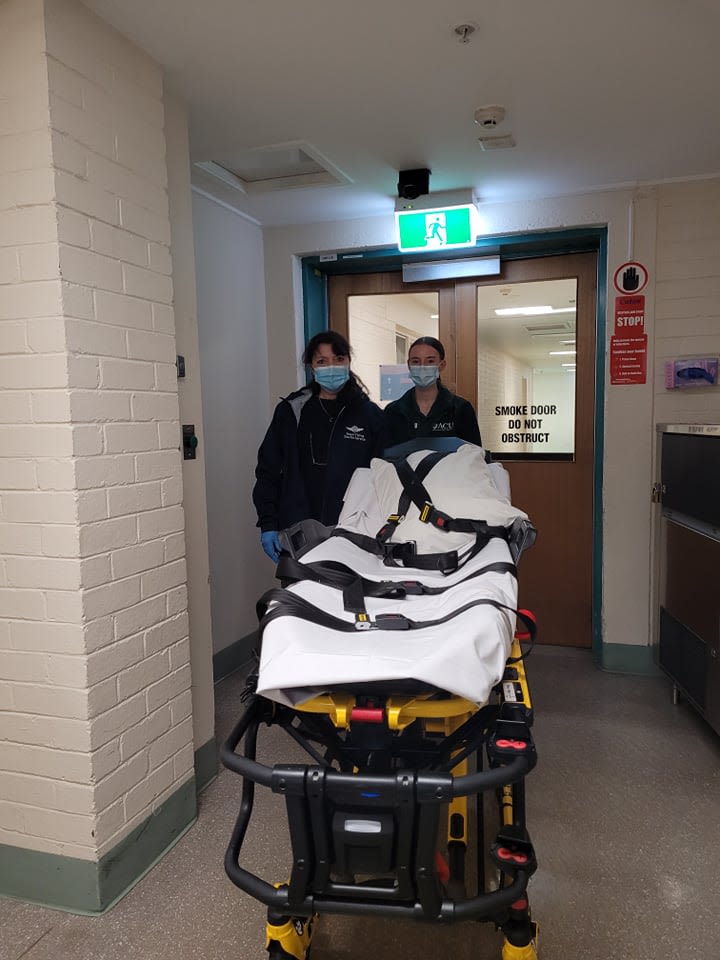
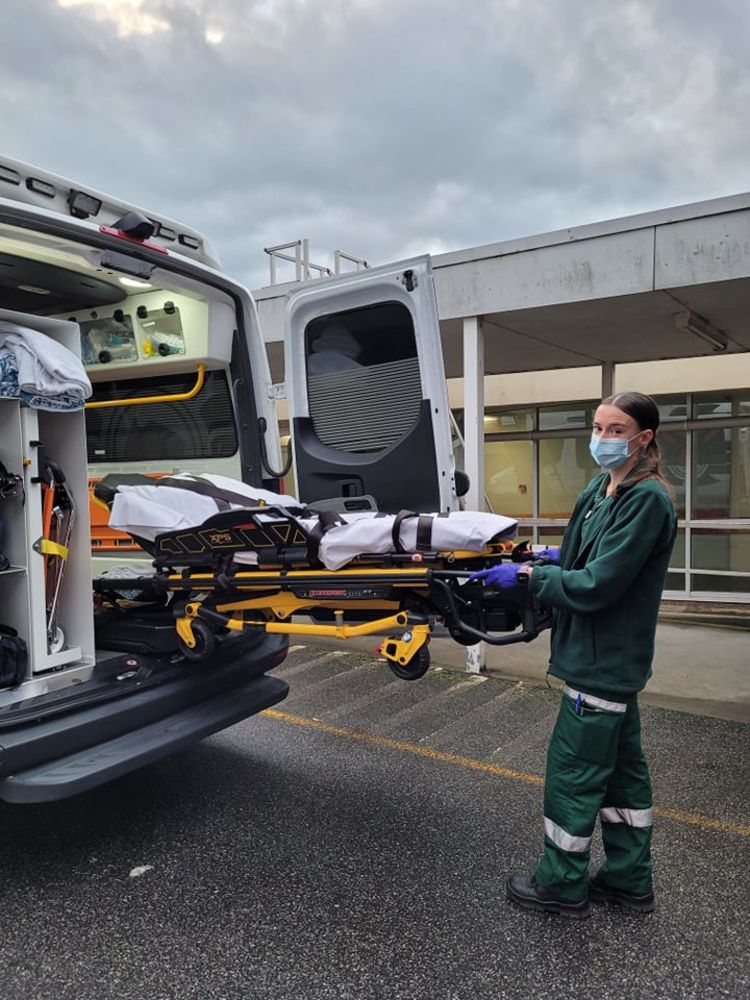
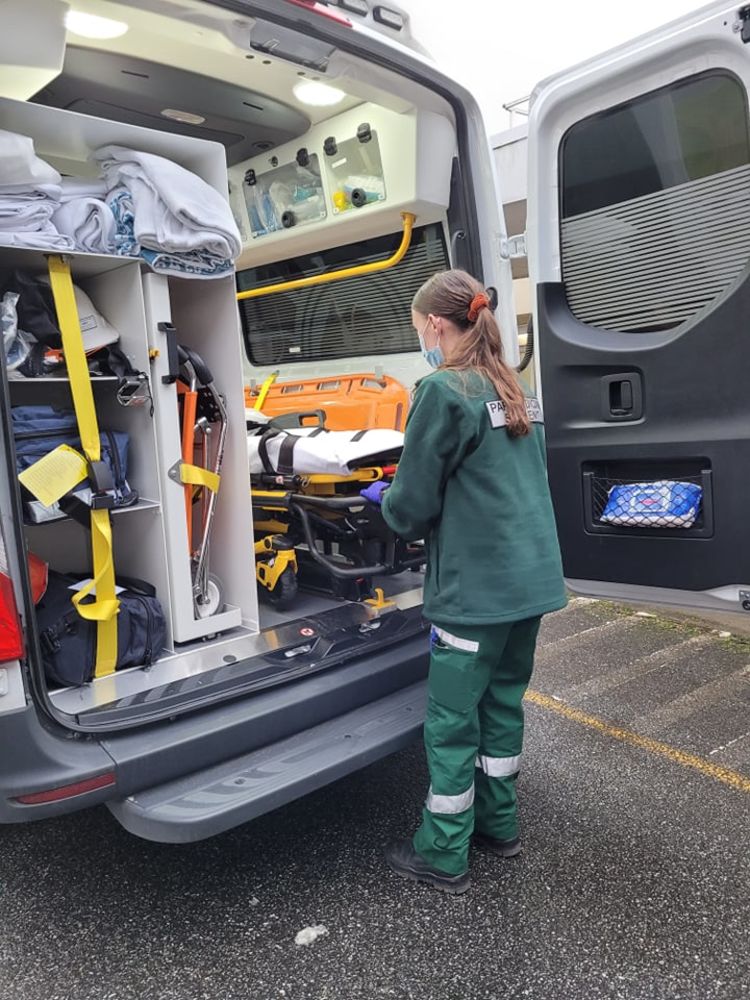
To find out more about MPC in Victoria, head to our website.

